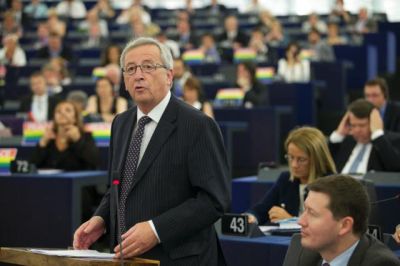- Is it enough to make a real difference? To pull Europe’s economy out of stagnation and to steer the Euro Area away from deflation, a substantial investment effort is necessary. The ETUC’s investment plan calls for 250 billion euro or 2% of European GDP for ten years.
- Is it about investing in the economy? Or liquidity for the banks? Will the EU invest in real projects or instead pump more money into the banks by buying their portfolios of (SME) loans in the hope that banks will lend more? The latter approach has been tried over the past years and failed.
- Does it focus on financially distressed member states? The European single currency is not in good shape. It is suffering from rising economic and social divergence between its member states. To make the single currency more sustainable, a special investment effort in its weaker members is highly desirable.
- Is it old wine in new bottles? Will the EU repackage investment that would have been done anyway? Such an approach would have no sense. Europe needs new and additional investment.
- Is it too dependent on the markets? To fund the plan, the Commission is reported to be planning to put in €30 billion or so and then have private money generate ten times this amount. This would make the investment plan reliant on reluctant financial markets.
- Is there enough public money? There are those who say that private investment will take off by ‘creating the right conditions’. The problem facing Europe however is not a lack of ‘conditions’ but a lack of demand. Business across Europe has restored profit margins to pre-crisis levels and is hoarding a large stock of cash it is not investing because demand for its goods and services is poor. To kick start the economy, public investment needs to take the lead. Will the Juncker package put in enough public money?
- Will Juncker emphasise the need for investment to be accompanied by further structural reforms? If so, what sort of reforms? The ETUC believes that many structural reforms of recent years have been part of the problem, not the solution. By weakening wages and social protection, reforms have intensified the crisis. Instead, Europe needs investment and fair wages, and decent social protection. If people have money in their pockets they will spend it, thereby boosting demand for goods and services.
“European Commission President Juncker has promised a new start for Europe” said Bernadette Ségol General Secretary of the ETUC “we hope his investment plan is not a false start.”

Press release
